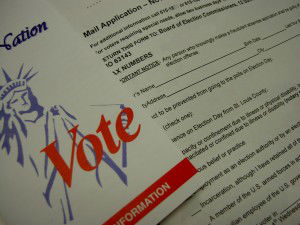Menu
Hot-Topics
November 27, 2025 | SCOTUS Adds Second Amendment Case to Docket
Tag: Voting Rights Act

Cooper v Harris: North Carolina Congressional Redistricting Overturned
In Cooper v Harris, 581 U. S. ____ (2017), the U.S. Supreme Court struck down two congressional redistricting maps in North Carolina. By a vote of 5-3, the majority held that the District Court did not err in concluding that race was the predominant ...

Supreme Court Denies Certiorari in Texas Voter ID Case in Abbott v Veasey
The U.S. Supreme Court denied certiorari in Abbott v Veasey, which challenges a controversial voter identification law implemented by the State of Texas. Nonetheless, the justices did leave the door open to review the voter ID law in the future. &...

Shelby v. Holder: Supreme Court Invalidates Key Provision of Voting Rights Act
Over forty-five years after Congress passed the Voting Rights Act of 1965, a deeply divided U.S. Supreme Court has invalidated one of its key provisions. By a vote of 5-4, the Court ruled that Section 4, which establishes states and municipalities th...

Will Upcoming Voting Rights Act Case Rest on the Elections Clause?
The U.S. Supreme Court saved the best for last, as it is poised to take on its most controversial cases in the coming weeks. The first case on deck is Shelby County v. Holder, which will reexamine the constitutionality of Voting Rights Act....
Previous Articles
Key Takeaways from Oral Arguments in Court’s Controversial Voting-Rights Case
by DONALD SCARINCI on November 12, 2025
The U.S. Supreme Court recently heard oral arguments in Louisiana v. Callais, which involves a key ...
Key Cases to Watch During the Supreme Court’s November Sitting
by DONALD SCARINCI on November 5, 2025
The U.S. Supreme Court’s November sitting begins on November 3 and concludes on November 12, 2025...
SCOTUS Clears Way to Terminate Protected Status for Venezuelan Nationals
by DONALD SCARINCI on October 29, 2025
On October 3, 2025, the U.S. Supreme Court granted an emergency request from the Trump Administrati...
The Amendments
-
Amendment1
- Establishment ClauseFree Exercise Clause
- Freedom of Speech
- Freedoms of Press
- Freedom of Assembly, and Petitition
-
Amendment2
- The Right to Bear Arms
-
Amendment4
- Unreasonable Searches and Seizures
-
Amendment5
- Due Process
- Eminent Domain
- Rights of Criminal Defendants
Preamble to the Bill of Rights
Congress of the United States begun and held at the City of New-York, on Wednesday the fourth of March, one thousand seven hundred and eighty nine.
THE Conventions of a number of the States, having at the time of their adopting the Constitution, expressed a desire, in order to prevent misconstruction or abuse of its powers, that further declaratory and restrictive clauses should be added: And as extending the ground of public confidence in the Government, will best ensure the beneficent ends of its institution.
Awards





